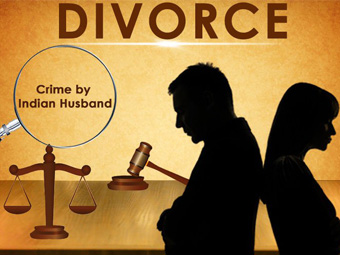Divorce Law in India

Leges Juris associates are very experienced to deals in divorce case on mutual consent divorce,contested divorce,annulment of marriage,child custody matters etc.we have vast knowledge in divorce cases and handling in verious courts in india.we always beleave in sucess.
RIGHTS OF AFTER MARRIAGE: Generally, parties to a marriage have the following rights:
Cohabitation and Conjugal rightswhich includes intercourse and companionship. If this right is not willingly granted a petition for restitution of conjugal rights may be filed. The court may declare in favour of the petitioner, but cannot force the respondent to cohabit with the petitioner. Non-compliance with the decree for one year shall form a ground for seeking divorce.
Financial security the spouse who is gainfully employed or receives an income, is required to maintain the spouse who is not so.
Matrimonial home which grants the wife the right to reside in her husband’s residence, and under Hindu law, also to be maintained by him, or his father.
Succession, according to which, a person can succeed to the property of the spouse under personal law, or under the Indian succession act.
Fidelity : Courtesy and decency including the right not to be harassed mentally or be subject to physical cruelty.
Legitimacy of issue: Though the above may be enumerated as rights they have to be deduced from the reciprocal duty on the parties, the failure to fulfil which could be grounds for seeking divorce.
DISSOLUTION OF MARRIAGE: The same laws according to which the marriage was solemnised govern dissolution of marriages, and the rights consequent to the dissolution.
The Indian Divorce, Act Special Marriage Act, the Parsi Marriage and Divorce Act and the Hindu Marriage Act, provide for annulment of the marriage, since its very inception, on grounds such as the non-fulfilment of mandatory conditions.. The Indian Divorce act requires confirmation by the High Court to come into effect.
The acts also prescribe that marriages may be annulled by decree if a party wilfully refuses to consummate the marriage, or if the wife was pregnant by a person other than the husband at the time of marriage, or if the consent of the parties was procured by coercion or fraud. I have received queries whether this would cover situations of ‘pressure’ and ‘emotional blackmail’ from parents. It would depend on the circumstances. But I doubt the court would accept such a ground if the party was an educated, employed adult and who was otherwise socially independent. Social and religious circumstances surrounding marriage in India do give rise to situations such as these where persons consider themselves bound by parental approval or decisions.
Marriages may also be dissolved if the spouse has not been heard of as living for a continuous period of 7 years. The spouse applying for dissolution would have to prove that he or she took adequate steps to seek out the other spouse.
All Indian personal laws have provided for grounds for divorce. Some common grounds of divorce are:
GROUND ON WHICH MARRIAGE CAN BE DISSOLVED
1. Adultery
2. Cruelty
3. Desertion and failure to maintain
4. Conversion to another religion
5. Incurable mental disorder
6. Incurable mental disorder which may result in abnormally aggressive or irresponsible behaviour
7. Virulent and incurable leprosy, or communicable venereal disease not contracted from the party filing the application
8. Renunciation of worldly life
The parties may decide to seek divorce by mutual consent, having decided that they do not want to live together. In such a petition, they need not disclose their reasons for making such a decision.
Muslim personal law also grants several options for the husband to seek divorce without approaching the court. The wife would be entitled to maintenance and dower and also to appeal the divorce in court.
JURISDICTION FOR FILLING OF PETITION FOR DIVORCE
An application for divorce may be filed in a court having jurisdiction. Such a court must be:
a. a court capable of entertaining matrimonial cases.
b. a court that has territorial jurisdiction over the place of marriage, the place where the couple last resided together, and the place where the respondent spouse currently resides. If the respondent resides abroad, then the petition can also be filed in India the place of residence of the petitioner.
c. For the decree to be valid, the court must apply the law under which the marriage was solemnised.
An appeal against the decree has to be filed in the court having supervisory powers over the first court.
DIVORCE LAW:- Divorce lawyers in Delhi, Divorce Law Firm in Delhi, Lawyers for Divorce in Delhi, Divorce Attorneys in Delhi, Divorce Litigation Lawyers in Delhi, Family Lawyers in Delhi, Family Disputes Lawyers in Delhi, Matrimonial Lawyers in Delhi, Child Custody Lawyers in Delhi, Domestic Violence Lawyers in Delhi, Divorce Lawyers in Patiala House New Delhi, Divorce Lawyers in Tis Hazari, Divorce Lawyers in karkardooma Delhi, Divorce Lawyers in Delhi High Court, Transfer Petition in Divorce Case in Supreme Court.

